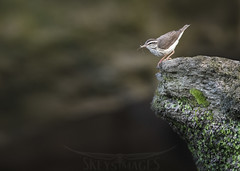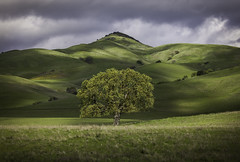As promised, in a continuing fit of self-involvement, another blog post in the same night!
Part of the Hewitt Summer School is the completion of a workshop that meets three out of the five days and presents its work on the last day of the festival. These workshops cover a variety of writing genres including Historical Fiction, Crime Fiction, two Poetry sections, Short Story, Playwriting (which we weren’t allowed to participate in because, duh), and Memoir. I went with historical fiction because I have an interest in writing a sitcom about Thomas Jefferson and John Adams sharing the White House from 1797 to 1801 (pretty flimsy, right? Not the pitch; that’s solid, rich conflict, there. No, the reasoning. That’s flimsy.)
I’ve come to find I don’t really care for the workshop much at all. It is absolutely no fault of the instructor’s, Heather Richardson, who is doing a bang-up job. I honestly don’t know what I was expecting when we went into it. In retrospect, I can’t think of anything that anybody would do in a historical fiction workshop other than what we’re doing now, examining primary historical sources (census reports, newspaper clippings, etc.). Her curriculum is running the rounds exactly as it should; I’m just not really into it.
No, the real problem with the class is the people I’m with. I love people that are passionate and outspoken and invested in what they believe in, but the fine ladies that make up our historical fiction workshop (outside of the other Armagh students in the group) have a ludicrously wide collective pool of very specific, very local Irish history at their disposal and they love to talk about it. Their connection to the history is so effusive that, when we were examining a census record from more than a century ago, one woman chimed in that her father had been taught by the mysterious national school headmaster whose life we were trying to puzzle together and that he was a wholly unremarkable instructor. It is simultaneously a fascinating case-study of the intricacy and depth of Irish roots and an infuriating exercise in saintly patience as we spend 80% of our class time sharing very specific anecdotes about a history I have absolutely no part to contribute.
This ample down time has, however, granted me an opportunity to consider a stupid question: what is considered historical fiction? I mean, isn’t fiction written by Jane Austen now considered historical fiction, even if it was contemporary when it was written? Look, I know I’m being obtuse here, because obviously in order for a piece to be considered “historical fiction”, I’m almost certain it has to be written after the facts and circumstances that dominate it. But then what do you call works like Austen, or any author that wrote contemporarily in their time. Is Charles Dickens a historical fiction writer just because Great Expectations takes place in a time period that is not our own? Will today’s writers be considered historical fiction writers in the future if their works are contemporary? Obviously not, but what do we call them? “Classics”? Generic “Fiction”? “Books”? I feel this is a hole in our literature zeitgeist, which is so set on labels and genrefication and compartmentalization for ease of display at our local Barnes and Noble and categorization on Amazon.com.
What do we call these works and why do I care?







[…] so get ready for a triple-whammy of my life story tonight, as I’ll be writing further on my workshopping experiences at the Hewitt and 3AM sentimental drivel […]
Perhaps the historical fiction ladies should be taking the memoir class? For me I think of historical fiction as writing about the past, but something decided not my past. Jane Austen wrote contemporary fiction that has now become classic… or out dated depending on your pount of view.
[…] course link to Chris Warman. To save time, I have linked each word in this sentence to one of his spectacular blogs. Take […]